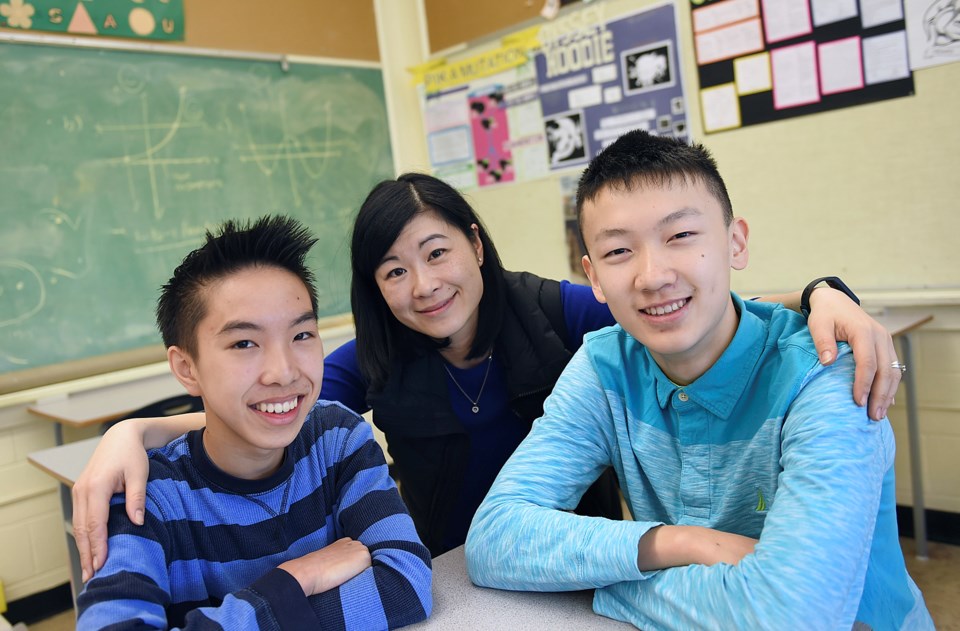At just 15, Ollie Zhao already fancies himself an Ivy League man.
That may sound audacious or brash, but consider how Zhao spent his downtime from school last summer: he busied himself by attaching electrodes to plants in an attempt to generate the necessary electricity to power a small watch or radio.
That curiosity and attention to detail has now landed the Grade 9 David Thompson secondary student a spot at the most prestigious science fair in Canada alongside two of his classmates.
It’s the first time three students from Thompson have all qualified for the upcoming Canada-Wide Science Fair in more than 20 years. The big show goes May 18 to 20 in Regina and features hundreds of the brightest minds from across the country.
“I’m very impressed with what they’re passionate about — it consistently wows me,” said Susan Leong, who oversees the school’s advanced sciences program known as the Odyssey Mini School.
Dubbed Amp Tree, Zhao’s project harnesses electricity from trees in order to power remote-controlled devices — sensors or transmitters — with little to no need for human intervention. On a more relatable level, the same system could power a small watch, radio, GPS or calculator.
Zhao’s end game took months of experimentation and started with garnering electrical currents from backyard plants. He then moved to the trees around his school. Using electrodes, grounding rods, copper wire and some know-how, he devised a method of extracting the living energy from those trees to be stored in small batteries.
“I have no idea what’s in store for us when we go to Regina,” he said. “Hopefully I win something, but I won’t be depressed if I don’t. The experience will be very valuable to me.”
Zhao will be flanked in Saskatchewan by fellow Grade 9 student Jonathan Cao, who’s taking on TransLink with his project called “reduce, reuse, reCompass.” Cao has built a conveyer belt-like device that aims to make single use Compass Cards completely biodegradable.
Cao’s contraption works via a Lego system of robotics that uses thermodynamics to separate the electronic chips and copper wiring embedded within the cards. While reCompass currently uses Lego to get the job done, Cao envisions his system built out of metal and placed outside all transit loops where monthly collection would see those materials entirely recycled.
“It was just an ordinary day, walking around near the 29th Avenue SkyTrain station,” Cao recalled of his moment of inspiration. “There were these Compass Cards littered everywhere. Before with the Fare Savers, the area was never this littered. I took one of them home, dissected it and found this copper beneath the paper. Then I got to work.”
All in, both students have poured close to a year’s worth of work into their projects and have advanced through both district and region-wide contests to make it to the national fair.
A third David Thompson student who’s advanced to Regina opted out of speaking to the Courier.
According Leong, a win in Regina can multiply exponentially into more wins down the line: scholarships, future jobs, networking and lab placements.
“These are very strong minded students,” Leong said. “They could off be playing basketball or gaming online, but no, their free time is used on projects like this. They are trying to solve problems facing our world here.”
@JohnKurucz



